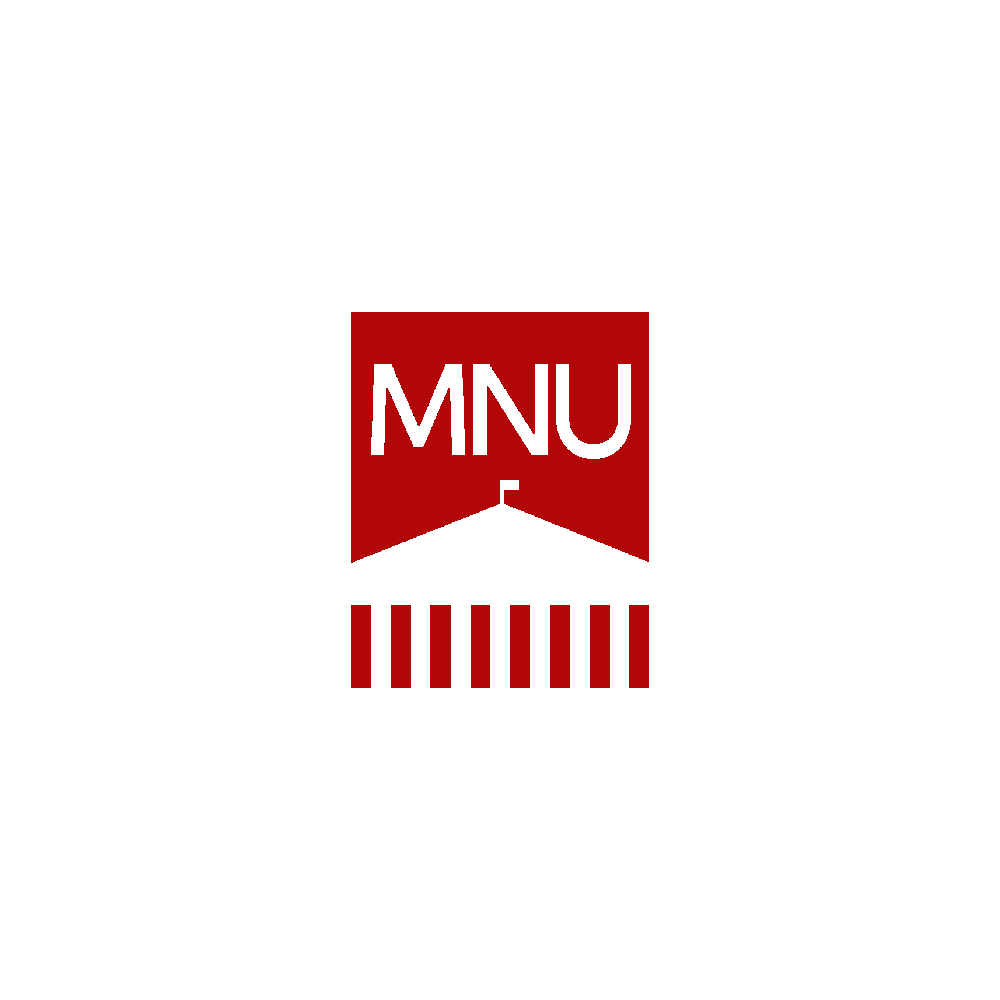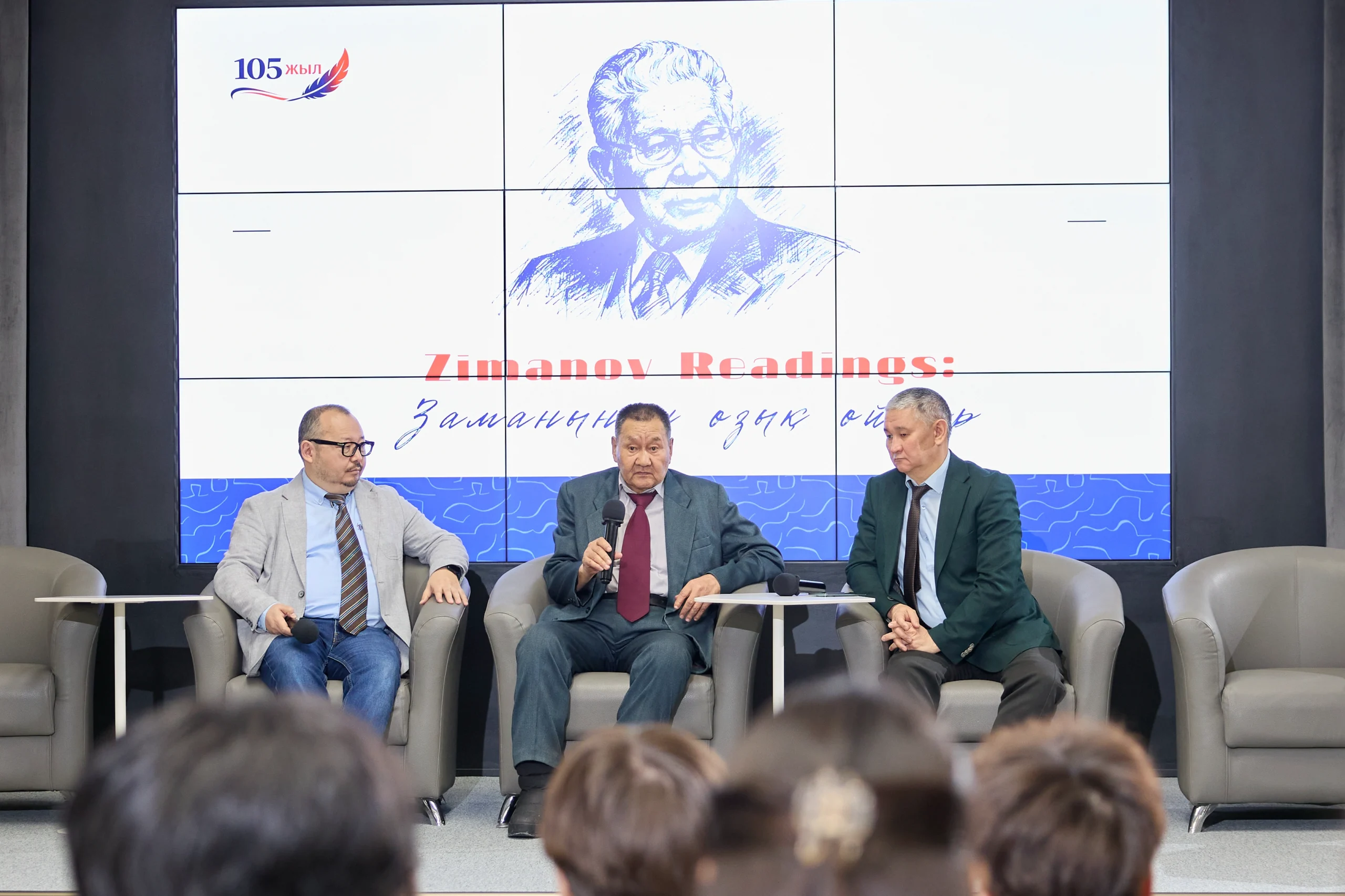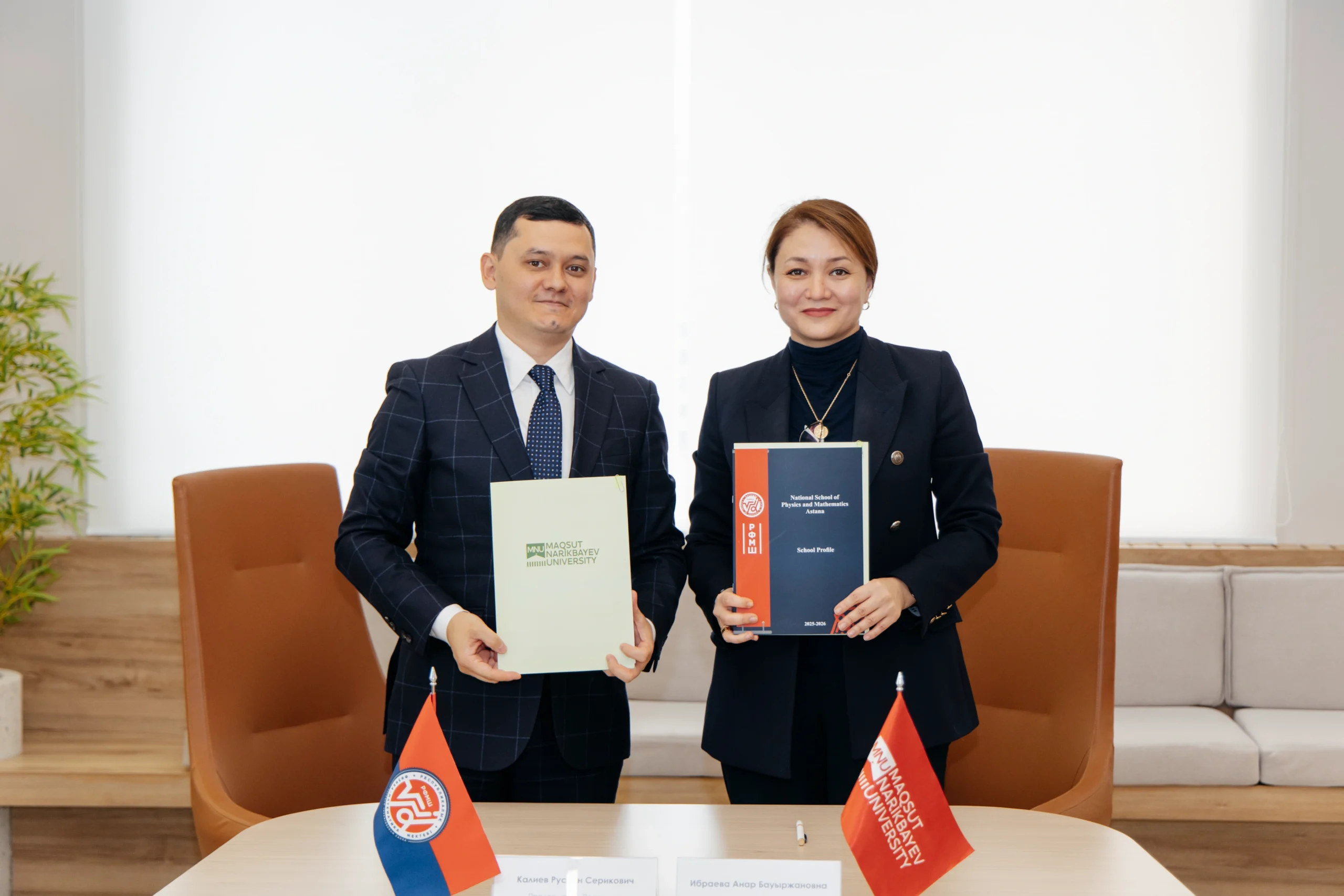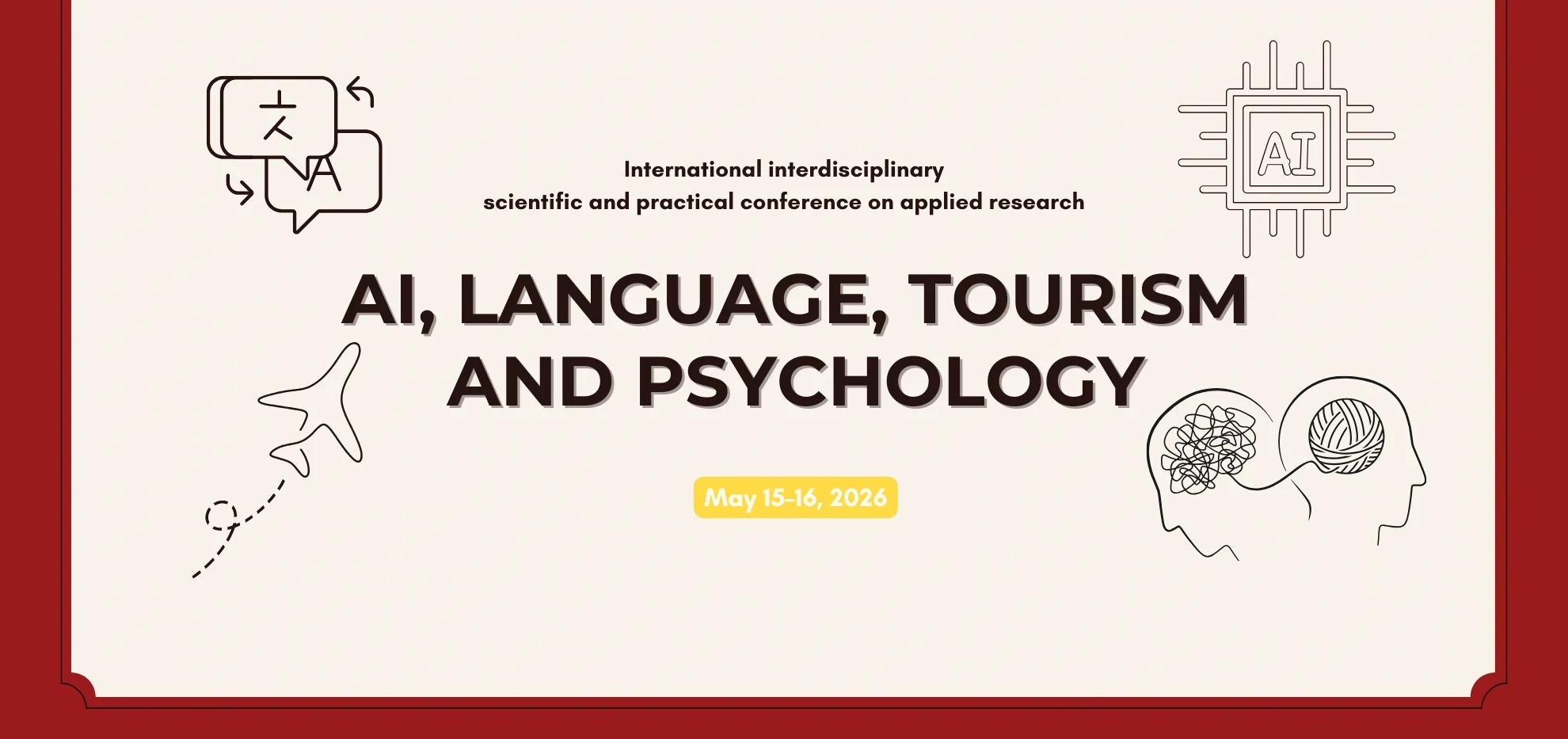In 2023, Maqsut Narikbayev University, in collaboration with the TV and Radio Complex of the President of the Republic of Kazakhstan, launched the International School of Journalism (ISJ). The establishment of the School marked a significant milestone in supporting and developing young talent, as well as cultivating a new generation of journalists equipped to meet the evolving communicative needs of both society and the state. ISJ Dean Aigul Zhamalova spoke about the training of future journalists, the distinctive features of the educational process at MNU, and the key advantages offered by the School.
– Ms. Aigul, last week marked exactly one year since you assumed the role of Dean of the International School of Journalism. What key milestones and projects would you highlight from this past year?
– It was a pivotal stage in the development of the International School of Journalism. Upon taking on the role of Dean, I was tasked with the critical responsibility of defining the School’s mission and shaping its strategic direction. Naturally, this is a process that extends beyond the scope of a single year. Nevertheless, much progress has been made. A key focus has been the modernisation of the educational process. For example, by the start of the second academic year, students were given the option to specialise in either video journalism or analytical journalism. Each track includes tailored modules to enable deeper engagement, allowing students to refine their professional competencies in their chosen field. We also significantly enhanced the practical component of the curriculum. Our students began conducting on-site reporting and producing field materials. Moreover, we introduced extracurricular placements throughout the academic year to ensure students continually sharpen their practical skills.
This year, with the support of the TV and Radio Complex of the President, we successfully forged strong partnerships with both domestic and international media organisations. We signed memoranda with global media giants such as Al Jazeera and Euronews. Guest lectures were delivered by professionals from Bloomberg and the BBC, and a representative from National Public Radio visited our School during a trip to Kazakhstan. These collaborations with globally renowned outlets are an outstanding achievement for us.
Finally, I must highlight the growing recognition of our School, largely owing to our students’ accomplishments. In 2024, they secured first place at the Republican Journalism Olympiad, competing against over 20 journalism faculties across the country. In November, at the Astana-wide “ESIRTKISIZ ELORDA” competition among journalism faculties, our students took both 1st and 2nd places. They wrote scripts, shot, and edited their own videos. Though they’ve not yet graduated, they’re already in demand on the media market — for instance, our students lead the development of the English-language version of Tengrinews.kz and manage the brand’s digital platforms, including TikTok. If you follow the channel, you’ll know what I mean (laughs – author’s note).
– How is the School structured, and how does it differ from journalism faculties at other universities? What benefits come from partnering with the Television and Radio Complex of the President of Kazakhstan?
– In June 2023, a memorandum was signed between Raushan Kazhibayeva, Director General of the TV and Radio Complex of the President, and Talgat Narikbayev, Chairman of the Board at MNU, formalising the launch of the International School of Journalism. This document represented a major step in supporting talented youth and developing a journalistic workforce aligned with the communicative demands of modern society and the state.
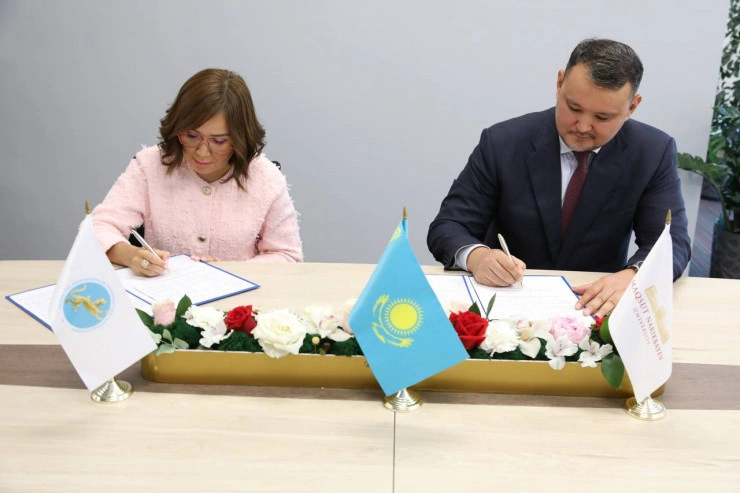
What sets our School apart is its unique model — the academic curriculum is delivered in close partnership with the country’s largest media institution. One of the key advantages for students is the opportunity to train at premier media outlets such as Kazinform International News Agency, Silk Way and Jibek Joly TV channels, and the Documentary Film Centre. Another benefit is that professionals from these outlets serve as lecturers, reinforcing our emphasis on practice-oriented education. Additionally, the TV and Radio Complex previously allocated grants to support students’ training.
Thanks to this partnership, we frequently host prominent guests and senior executives from leading foreign media companies. These interactions open new horizons for our students’ professional development. Notably, when hiring, the TV and Radio Complex gives strong preference to our students and graduates, it is a mutually beneficial arrangement. On behalf of the ISJ, I’d like to extend sincere gratitude to Director General Raushan Zhanabergenovna for her invaluable support and contribution to the School’s development.
– How many students are currently enrolled at the ISJ, and what opportunities are provided to them? Are there plans to launch a Master’s programme in the future?
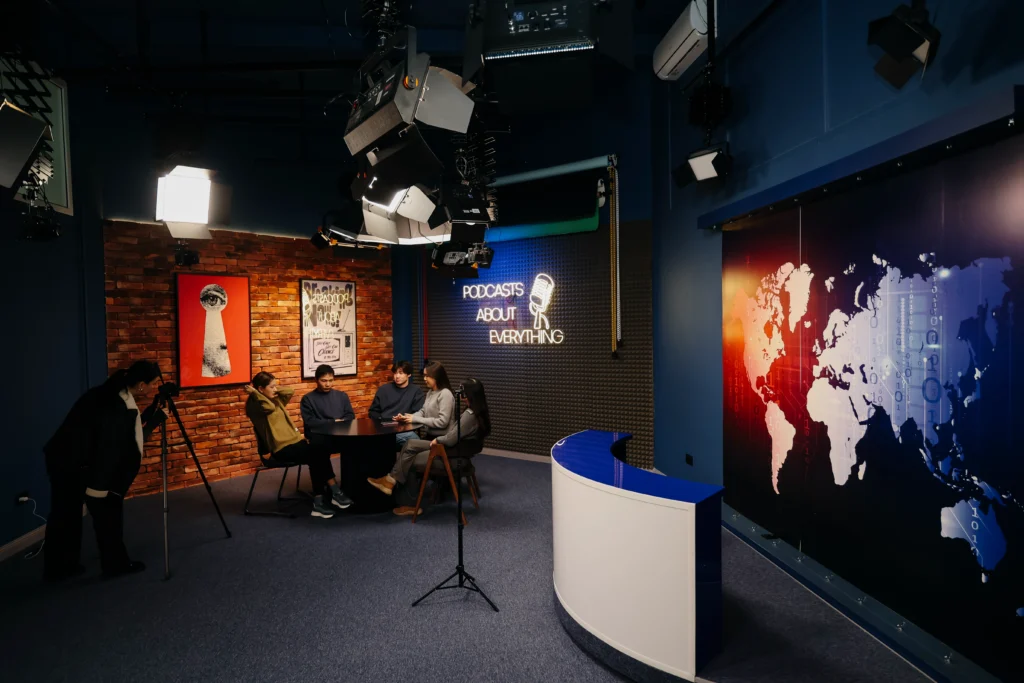
– At present, the ISJ has 255 enrolled students. Each of them benefits from a unique educational environment that nurtures practical skills from day one. We provide essential equipment, including cameras, tripods, lenses, batteries, and various types of microphones, along with access to both outdoor and studio film sets. Another key advantage is our faculty — active media professionals whose experience enriches classroom learning, helps students build networks, and eases their entry into the media job market.
As for the Master’s programme, it is currently under consideration. However, our primary focus remains on refining and enhancing the undergraduate curriculum. I believe that even at the bachelor’s level, we offer a solid foundation for students intending to pursue postgraduate studies, including at top international universities.
– As we know, the media landscape is changing rapidly. With digitalisation, media outlets are transforming, and demand for convergent, multimedia journalism is increasing. At the same time, information consumption patterns are also evolving. In light of these developments, what kind of journalists is Maqsut Narikbayev University aiming to train? How vital is it today to teach students multimedia tools in addition to theoretical knowledge?
– Multimedia journalism is not merely a trend — it is today’s standard. A modern journalist must be a complete content creator: capable of writing, filming, editing, and adapting material for multiple platforms. At Maqsut Narikbayev University, our educational approach is built on this triad: theory + digital and practical skills + hands-on experience in real newsrooms.
– Faculty composition is, of course, a critical element. As you’ve noted, your School emphasises practical training. Why this emphasis, and do you believe other universities should reconsider the way they recruit faculty?
– At the International School of Journalism, we place significant value on faculty members’ practical experience. Journalism is a dynamic and fast-paced field, so it’s crucial for students to learn from professionals who are actively engaged in the industry. That said, we don’t oppose theory and practice — rather, we strive to strike the right balance between the two.
Other universities may follow different models, depending on their academic objectives. However, in my view, the demands of contemporary journalism increasingly call for practice-based education, and this need will only grow.
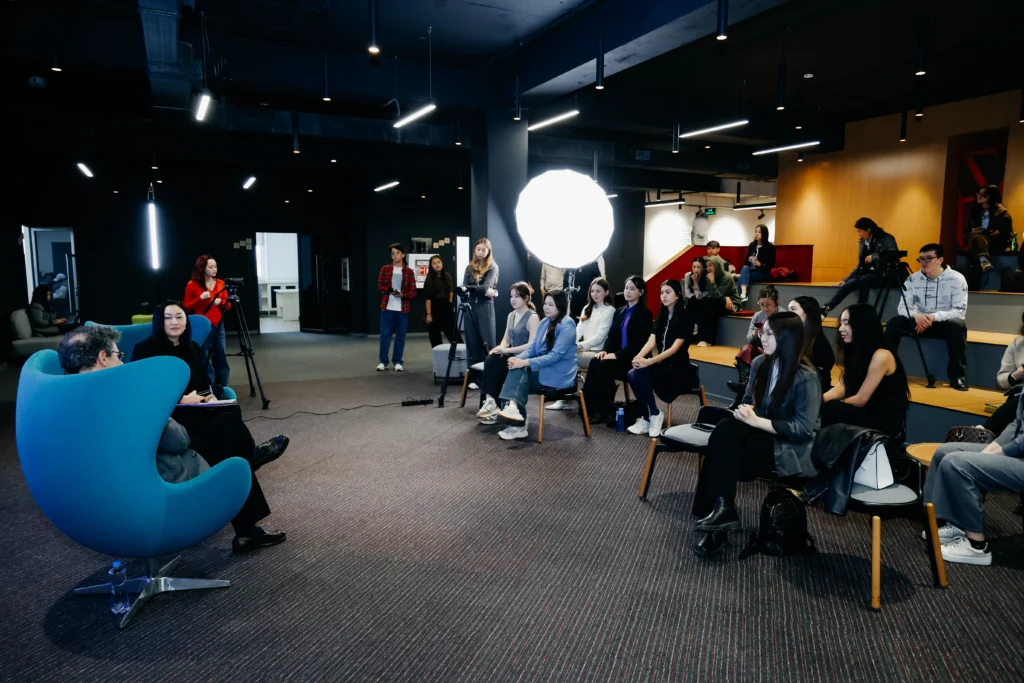
– You have worked in domestic television, studied in the UK, launched digital strategies, and have experience in PR. Based on your extensive background, what, in your opinion, defines a modern journalist? What core skills are essential today?
– Journalism today is more demanding than it was a decade ago. In the past, strong writing skills could compensate for a journalist’s weaknesses in other areas. Today, expectations are far higher: a journalist must be a multi-skilled professional who can write, film, produce, and edit content. At the same time, societal expectations have also evolved. A modern journalist must uphold high ethical standards, think critically, and collaborate effectively. In the age of cancel culture, professionalism and responsibility are non-negotiable. Emotional intelligence, adaptability, and strong communication skills are essential to build trust with the audience — and trust is now a journalist’s most valuable asset.
– President Kassym-Jomart Tokayev stated during the 2024 Media Workers’ Day celebration that both the state and journalists serve the people and influence national life. MNU’s mission is to serve society through high-quality, affordable education. How important is it for future journalists to prioritise national interests in their reporting?
– I fully support the President’s statement — journalists do indeed serve the people and shape the life of the country. This is a key message we strive to convey to our students throughout their education. There are numerous frameworks — the “Fourth Estate” concept, the theory of social responsibility, the democratic model, and Hallin and Mancini’s typology of media systems — all of which emphasise the public service role of journalism. Maintaining a balance is crucial. When journalists prioritise political, commercial, or personal agendas over public interest, that balance is disrupted. It is essential to uphold transparency, expose wrongdoing, represent diverse perspectives, and promote civic awareness — all while adhering strictly to professional ethics. These principles must guide both current and future journalists.
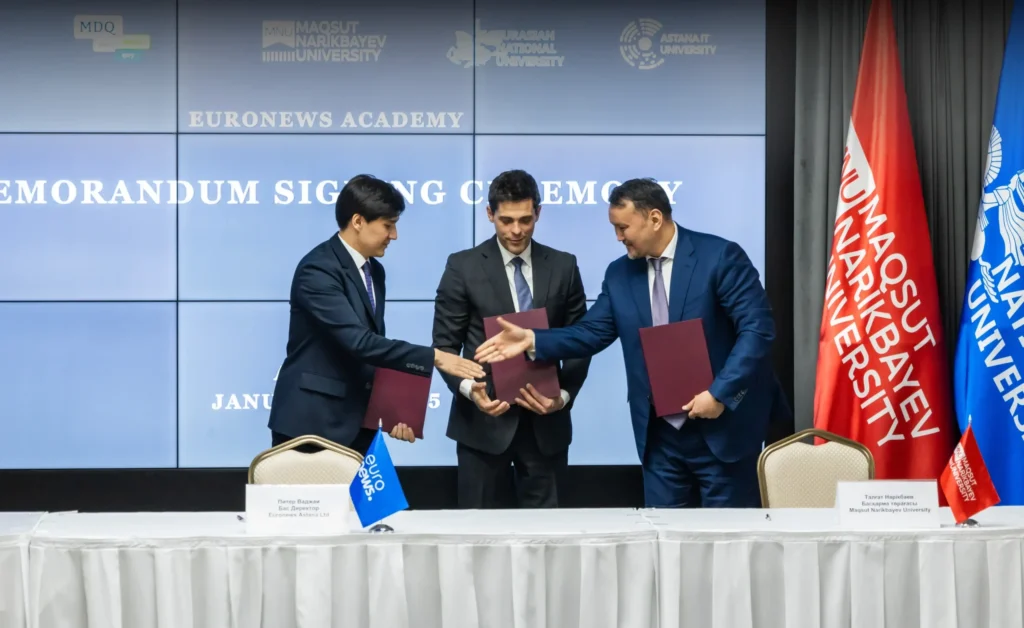
– Earlier, MNU hosted training sessions by Al Jazeera experts. The Euronews Academy has also begun operating at the university. What opportunities do these partnerships provide for students, and what is being done to expand collaboration with both domestic and international media outlets?
– First and foremost, these partnerships create career pathways — through internships, training, and potential employment. Secondly, they foster invaluable networking. Students gain access to top-tier media professionals, ask questions, form connections, and better understand global industry standards. Thirdly, they help elevate local professional standards. Many local journalists look up to their international peers, adopting best practices and drawing inspiration from innovative formats. The best part is that our students no longer have to travel abroad to benefit from these experiences. Through our partnerships, top experts come directly to us, conduct workshops, share insights, and help our students grow — all within the university walls.
We’re also expanding collaboration with foreign universities. We’re developing academic mobility opportunities in partnership with MNU’s International Office. This year, for the first time, two ISJ students will go on exchange programmes to Malaysia and Slovakia — and this is just the beginning. We’re committed to building even more opportunities in this direction.
– The ISJ will soon graduate its first cohort. What are your main goals for yourself and the School in the coming years?
– Yes, it’s a very exciting time for us. I’ve taught these students personally, so there’s a sentimental aspect as well. Being the first is always both a challenge and an opportunity — it means setting the bar. This responsibility demands adaptability, vision, and the courage to embrace change. Our graduates’ career paths will serve as an indicator of how well we’ve structured their training. But even before their graduation, we’ve already made numerous adjustments to our programmes, responding to the rapidly evolving media environment.
Our mission remains the same: to prepare media professionals who are proficient across a wide range of genres and formats, from analytical reporting to digital storytelling. Just as importantly, they must be critical thinkers, agile, and aware of their social responsibilities.
– What would you say to applicants considering the International School of Journalism?
I would encourage them to follow their curiosity and pursue their passions without fear. I love Steve Jobs’ quote from his 2005 Stanford commencement speech: “Stay hungry. Stay foolish.” We’re looking for exactly those kinds of applicants — people with inquisitive minds and a drive for growth, even if the path seems uncertain at first.
We want students who are ready to learn not just within the classroom but beyond it — those willing to take on real-world projects, collaborate with industry professionals, and reflect on their societal impact. If you’re passionate about journalism and unafraid of challenges, we’re ready to welcome you!
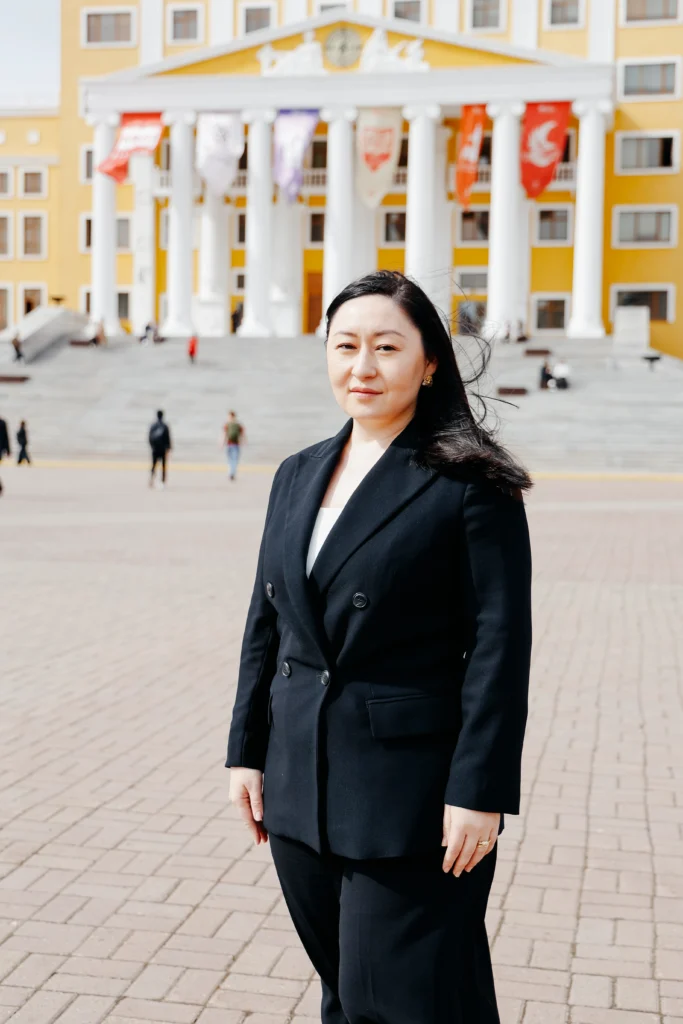
– Thank you for the engaging and informative conversation!
You can learn more about the activities of the International School of Journalism in the dedicated section of our website and on the ISJ’s Instagram page.
